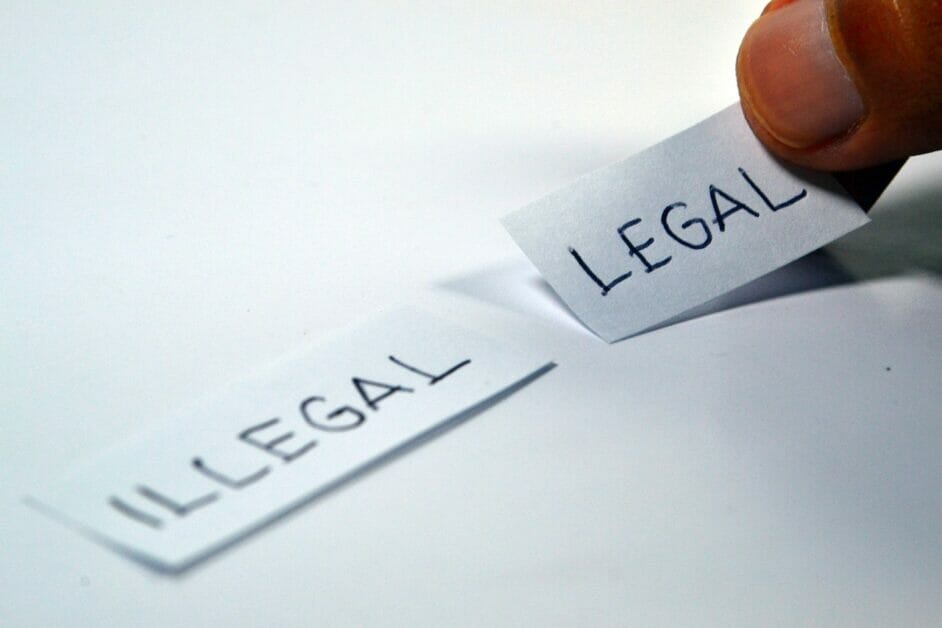
Is Body Shaming a Crime? Exploring Legal Implications
Body shaming can take many forms, such as mocking someone’s weight, height, skin color, or physical features.
While body shaming may not be illegal, it can violate civil rights laws, such as discrimination based on race, gender, disability, etc. Additionally, there are certain situations where body shaming can lead to legal consequences, such as workplace harassment or hate crimes.
This article will explore the legal implications of body shaming and examine the potential consequences for those who engage in this behavior.
How Can It Be a Crime?
Though body shaming, in general, is not a crime, here’s a table that shows examples of how body shaming can fall into different types of crime cases:
| Type of Crime | Example of Body Shaming |
|---|---|
| Cyberbullying | Posting a photo of someone online with a derogatory comment about their weight or body shape |
| Harassment | Making comments about someone’s body in a way that creates a hostile work environment |
| Defamation | Spreading false rumors about someone’s body, such as claiming they have an eating disorder or a sexually transmitted infection |
| Assault | Physically touching someone’s body in an unwanted way violates their personal space. |
| Hate Crime | Targeting someone for body shaming based on their race, gender identity, or other protected characteristics |
It’s important to note that the laws around body shaming can vary depending on the jurisdiction and the case’s specific circumstances.
However, body shaming can generally be considered harassment or discrimination and may be punishable by fines, imprisonment, or other legal penalties.
The Implications of Body Shaming

As someone who has experienced body shaming firsthand, I know how damaging it can be to one’s self-esteem and mental health.
Let’s explore this issue from legal, moral, and ethical perspectives.
Legal Perspective
Currently, there are no laws that specifically address body shaming.
However, certain types of body shaming can fall under harassment, discrimination, or hate speech laws, depending on the context and severity of the behavior.
For example, if someone repeatedly makes derogatory comments about someone’s weight or appearance in a workplace or educational setting, it could be considered harassment and violate anti-discrimination laws.
Additionally, some countries have taken steps to criminalize certain types of body shaming.
For instance, France has banned skinny models and requires models to have a minimum body mass index (BMI) to work.
Other countries have implemented similar laws to combat the harmful effects of body shaming in the fashion industry.
Moral and Ethical Perspective
From a moral and ethical standpoint, body shaming is unquestionably wrong.
It perpetuates harmful stereotypes and contributes to a culture of body negativity and shame. Body shaming can lead to severe mental health issues such as depression, anxiety, and eating disorders.
Society should strive to promote body positivity and acceptance and discourage harmful behaviors such as body shaming.
Ultimately, while there may not be specific laws against body shaming, it is essential to recognize its harmful impact on individuals and take steps to prevent it from happening.
Everyone is responsible for treating others with kindness and respect, regardless of appearance.
Here is an outline of some potential legal implications when someone engages in body shaming:
| Legal Implication | Description |
|---|---|
| Employment Discrimination | If someone spreads false or harmful information about another person’s body size or shape. This can include statements that damage a person’s reputation or cause them to suffer harm, such as loss of employment or other opportunities. |
| Harassment | Body shaming can also be considered harassment if it creates a hostile work environment or is severe or pervasive enough to interfere with an individual’s ability to perform their job. Harassment based on a protected characteristic is illegal under federal and state laws. |
| Defamation | In some cases, body shaming can be so extreme or outrageous that it causes severe emotional distress to the victim. This can result in legal action for intentional infliction of emotional distress, which requires showing extreme and outrageous conduct that causes severe emotional pain. |
| Intentional Infliction of Emotional Distress | Body shaming can also violate a person’s civil rights if it is based on protected characteristics such as race, gender, disability, or age. Victims of civil rights violations can seek legal action and damages under federal and state laws. |
| Civil Rights Violations | Suppose someone spreads false or harmful information about another person’s body size or shape. This can include statements that damage a person’s reputation or cause them to suffer harm, such as loss of employment or other opportunities. |
It’s important to note that the specific legal implications of body shaming can vary depending on the circumstances and jurisdiction and that this table is not exhaustive.
Current Laws and Legal Precedents

No specific laws make body shaming a crime in most countries, but some legal precedents can be used to prosecute people who engage in this harmful behavior.
In the United States, for example, some states have passed laws that make it illegal to discriminate against people based on their weight or body type.
These laws are often called “anti-fat bias” or “size discrimination” laws. However, these laws are not comprehensive and do not cover all forms of body shaming.
Another legal precedent that can be used to prosecute body shaming is harassment laws.
In many countries, including the United States, harassment is illegal and can include any behavior that creates a hostile or intimidating environment.
Body shaming can fall under this definition, especially if done repeatedly or publicly.
While there are no specific laws that make body shaming a crime, there are legal precedents that can be used to hold people accountable for this harmful behavior.
As a society, everyone needs to continue pushing for more comprehensive laws that protect people from discrimination, including body shaming.
What Exactly is Body Shaming



To those who have experienced body shaming firsthand. It is hurtful and damaging and can have long-lasting effects on an individual’s mental health.
Body shaming is criticizing or mocking someone’s physical appearance, usually to make them feel ashamed or embarrassed.
Types of Body Shaming
There are many types of body shaming, and they can take many forms. Some common examples include:
- Comments about weight or size
- Insults about physical features, such as nose, ears, or skin color
- Teasing or bullying about clothing choices
- Mocking someone’s physical abilities or disabilities
These are just a few examples, but there are countless ways in which people can be body shamed.
Effects of Body Shaming
The effects of body shaming can be devastating. For many, it can lead to low self-esteem, depression, anxiety, and suicidal thoughts.
Body shaming can also cause people to develop unhealthy relationships with food and exercise, leading to eating disorders and other health problems.
It is important to remember that everyone is unique and beautiful in their way. Body shaming is never okay, and we should all strive to build each other up instead of tearing each other down.
Final Thoughts
After researching and analyzing the topic of body shaming, I believe it is a serious issue that needs to be addressed. Body shaming can hurt a person’s mental health and self-esteem, leading to long-term consequences.
While body shaming may not be considered a crime in the legal sense, individuals and society need to recognize the harm it can cause. We need to create a culture that celebrates diversity and promotes body positivity.
It’s important to remember that everyone has a unique body shape and size and that no “perfect” body type exists. We should strive to embrace and accept our bodies and encourage others to do the same.
By speaking out against body shaming and promoting body positivity, we can create a world where everyone feels comfortable and confident in their skin. Let’s work together to make this a reality.
Resources
Organizations:
- The National Eating Disorders Association. https://www.nationaleatingdisorders.org/
- The Body Positive. https://www.thebodypositive.org/
- The National Association to Advance Fat Acceptance. https://naafa.org/
Books:
- “Body Positive Power: How to Stop Dieting, Make Peace with Your Body and Live” by Megan Jayne Crabbe
- “The Beauty Myth” by Naomi Wolf
- “Hunger: A Memoir of (My) Body” by Roxane Gay